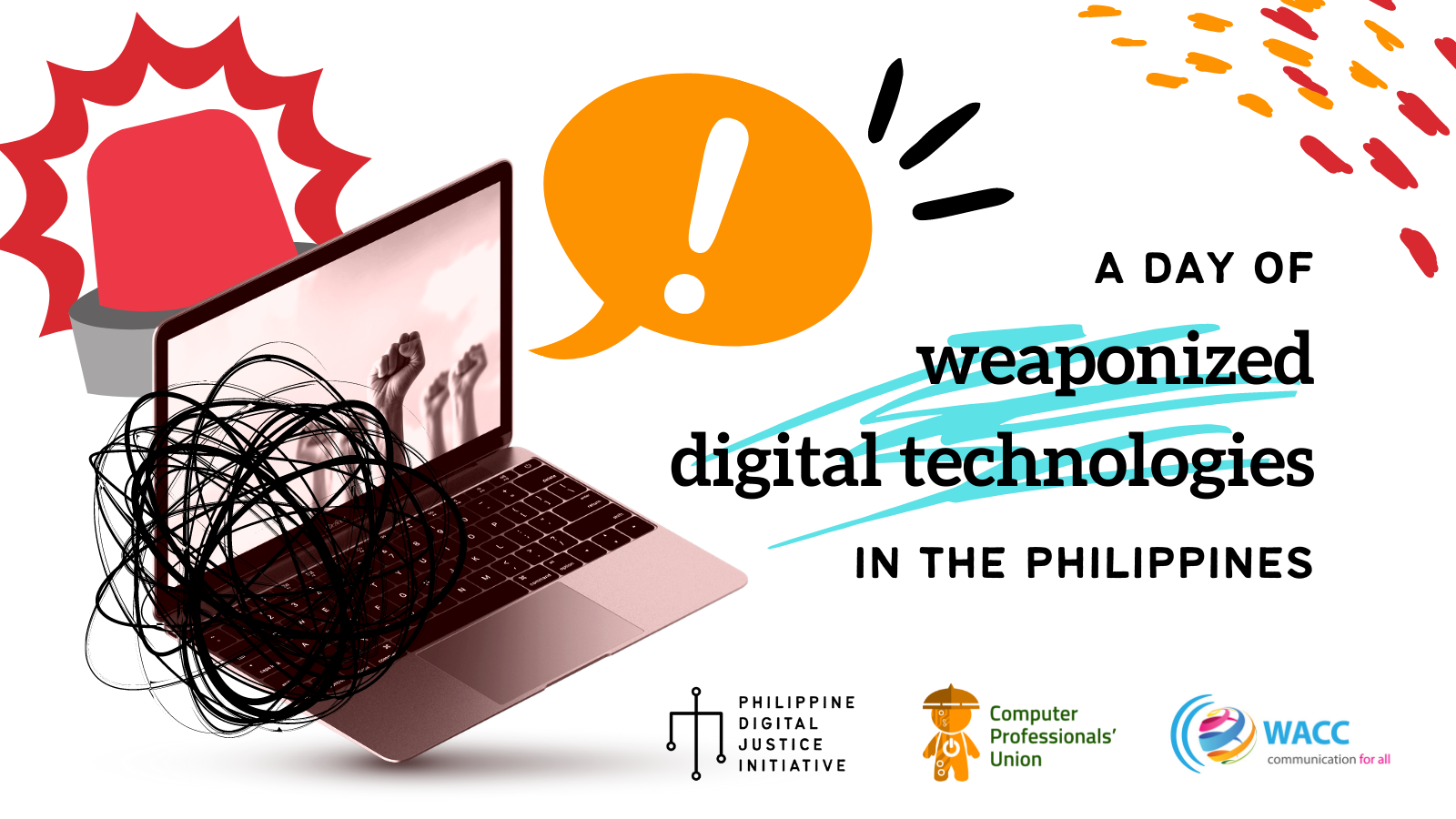October 6, 2021—Two remarkable events that highlight the Duterte regime’s weaponization of digital technologies to hijack our communications rights took place today.
In the midst of the 6th day of the filing of certificates of candidacy (COC) for the 2022 Philippine National Elections, an emergency alert was broadcast to mobile phones in the vicinity of Sofitel, where the aforementioned activity was being held. However, the alert which is by law used for disaster emergencies contained a message pertaining to a certain BBM—initials of the late dictator Ferdinand Marcos’s son, Bongbong Marcos.
The alert read, “Buong Buo ang Malasakit sa Bansa. Buong Buhay ang Mailay sa taong bayan. Bagong Bukas na Masagana para sa masa. BaBangon Muli ang Pilipinas (V) BBM sa bansa, BBM sa taong bayan, BBM sa Masa.. BBM Pilipinas!!!”
Bongbong Marcos lost in his bid for Vice President in the 2016 elections, as well as his several electoral protests against Vice President Leni Robredo. He filed for his COC for the position of President today.
The COMELEC says that there are no existing electoral laws prohibiting or sanctioning such a ruthless tactic.
In the same day, a distributed denial of service (DDoS) attack was launched on the official website of the Senate of the Philippines. Two days ago, a DDoS attack also targeted Senator Richard Gordon’s website.
Senator Gordon is chairman of the blue ribbon committee which held a hearing yesterday, October 5, on Pharmally Parmaceutical Corporation’s anomalous pandemic contracts amounting to Php 12 billion with links to President Duterte himself.
These two events not only highlight how the flow of information in the digital sphere is being hijacked, they also reveal how our democratic processes are being digitally hijacked in favor of the ruling elites.
We must keep a watchful eye and demand accountability for these attacks. Digital justice must be served to preserve and uphold our hard won rights and freedoms.

